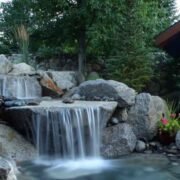General living spaces include significantly more allergens and contaminants than you would prefer. The best hepa air purifier (short for high-efficiency particulate air filters) removes contaminants from the air and makes it easier to inhale.
This sort of air filter works by capturing and blocking tiny, potentially dangerous particles from entering your apartment’s air ducts, such as dust mites, dirt, soot, dander, and allergens. By forcing air to travel through a very tiny, mesh-like web of fibres, HEPA filters gather and eliminate harmful contaminants.
How Do These Filters Work?
As particles travel through HEPA filters, they are trapped in four main ways:
- When particles are pushed around by gas molecules and subsequently adhere to one of the threads, this is called diffusion.
- When a particle tries to get through the air filter but strikes and attaches to a fibre instead, it is called interception.
- When a pollutant passes through a filter, it becomes trapped between two fibres. This is called sieving.
- Particles adhere to the fibres passing through the filter, causing impaction.
HEPA filters are most commonly found in home air purifiers and vacuum cleaners. To be classified as a HEPA filter, the filter must capture 99.98 per cent of particles with a diameter of 0.4 microns or greater. A single strand of hair is around 100 microns wide; therefore, the filtered particles are minuscule.
A HEPA filter will not trap gases, germs, viruses, and smells. Not all HEPA filters comply with government criteria; seek phrases like “genuine HEPA” and “absolute HEPA” to see whether it does.
What Is The Price Of A HEPA Filter?
HEPA filters range in price from $15 to $100, depending on the quality, expected lifespan, and brand. HEPA air purifiers range in price from $45 to $1500, depending on size, efficiency, and expected coverage area. Most hardware stores, home depots, and online stores sell HEPA air purifiers and HEPA filters.
What to Look For Before Purchasing A HEPA Filter-Based Air Purifier?
HEPA filters and the air purifiers that employ them must be tailored to the space to create the healthiest air possible. When purchasing an air purifier, ensure that the HEPA filter has a clean air delivery rate (CADR) that matches your space’s requirements.
The CADR indicates how much air goes through the filter per unit area, and some spaces may be too large for the filter to remove contaminants effectively. If the match isn’t appropriate, you won’t achieve the purifying outcomes you wish to achieve.
How to Take Care of Your HEPA Filter:
The most premium standard in air filtration has been dubbed HEPA filters. You’ll need to change your filters regularly to keep your purification system or your heating and ventilation unit in good working order. Some will need to be replaced every four to seven months, while others may only need to be replaced every six months to two years. Some brands even produce reusable air filters.
Summing Up:
One of the top four ecological health concerns is indoor air pollution. Fortunately, air filtration systems are one of the most effective ways to eliminate allergies and other dangerous particles that float through the air. Energy star certification is available for the best hepa air purifier in the market.
Purifiers with HEPA filters can help with allergies and asthmatic conditions by collecting pollen, soot, and other allergens that would otherwise migrate throughout a room. During periods of the year when allergies are intensified, those who suffer from dust or seasonal allergies may seek solace by using purifiers with HEPA filters.












